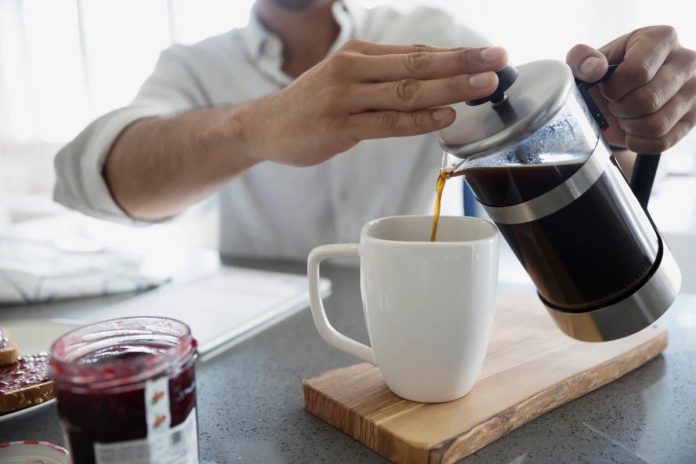Coffee is a common morning beverage; however, some indulge in a late afternoon cup for a pick-me-up, or cap off their dinner with a cappuccino or espresso. A new study suggests that coffee lovers should avoid the flavorful view at least six hours before turning in. Indulging within the six hours before bedtime may be extremely disruptive to one’s sleep. The findings were published in the November edition of the Journal of Clinical Sleep Medicine by researchers at Wayne State University in Detroit, Michigan.
The study group comprised twelve healthy individuals. They were given three pills a day and instructed to take one pill six hours before bedtime, one pill three hours before bedtime, and one pill just before they went to sleep. On any given day, only one of the pills contained 400 mg of caffeine, which is equivalent to the amount of caffeine found in two to three cups of coffee. The investigators measured the subjects’ using both subjective analyses and in-home sleep monitors, which measured their brain activity.
The researchers assumed that the effect of caffeine would be greater if taken just before bedtime; however, they were surprised to find that caffeine consumption appeared to cause significant sleep disruptions, regardless of whether it was consumed 0, 3, or 6 hours before retiring. In fact, they found that caffeine consumption six hours before bedtime was associated with a one-hour reduction in total sleep time. They note that the loss of one hour of sleep is extremely significant because if it occurs on a regular basis, it would result in sleep deprivation. Chronic sleep deprivation has been reported to cause a number of adverse health effects, including cognitive impairment during the day and negative mood.
The investigators did not pinpoint why caffeine had such a profound effect on sleep; however, they theorized that it might be related to the way caffeine effects adenosine, which is a neurotransmitter that accumulates in the brain during waking hours and decreases during sleep. They also noted that heavy caffeine consumers may be more immune to the stimulant’s effects, compared to those who drink in moderation. For those moderate drinkers, the effect would most likely be more pronounced.
The study authors concluded that their study demonstrates caffeine consumption even six hours before bedtime can have significant disruptive effects on both objective and subjective measurements of sleep. They add that their findings provide support for sleep hygiene, which includes refraining from caffeine consumption for a minimum of six hours before bedtime.
Take home message:
A limitation of this study is the small number of participants. Individuals who drink decaf should be aware that decaffeinated coffee still contains caffeine—the decaffeination process removes about 50% of the caffeine. Terms such as “98% caffeine free” are misleading because regular coffee contains about 4% caffeine (96% caffeine free). Thus, an individual who drinks two cups of decaf would consume the caffeine equivalent of one cup of regular coffee. The results of this study also apply to other sources of caffeine such as tea and caffeinated beverages.








